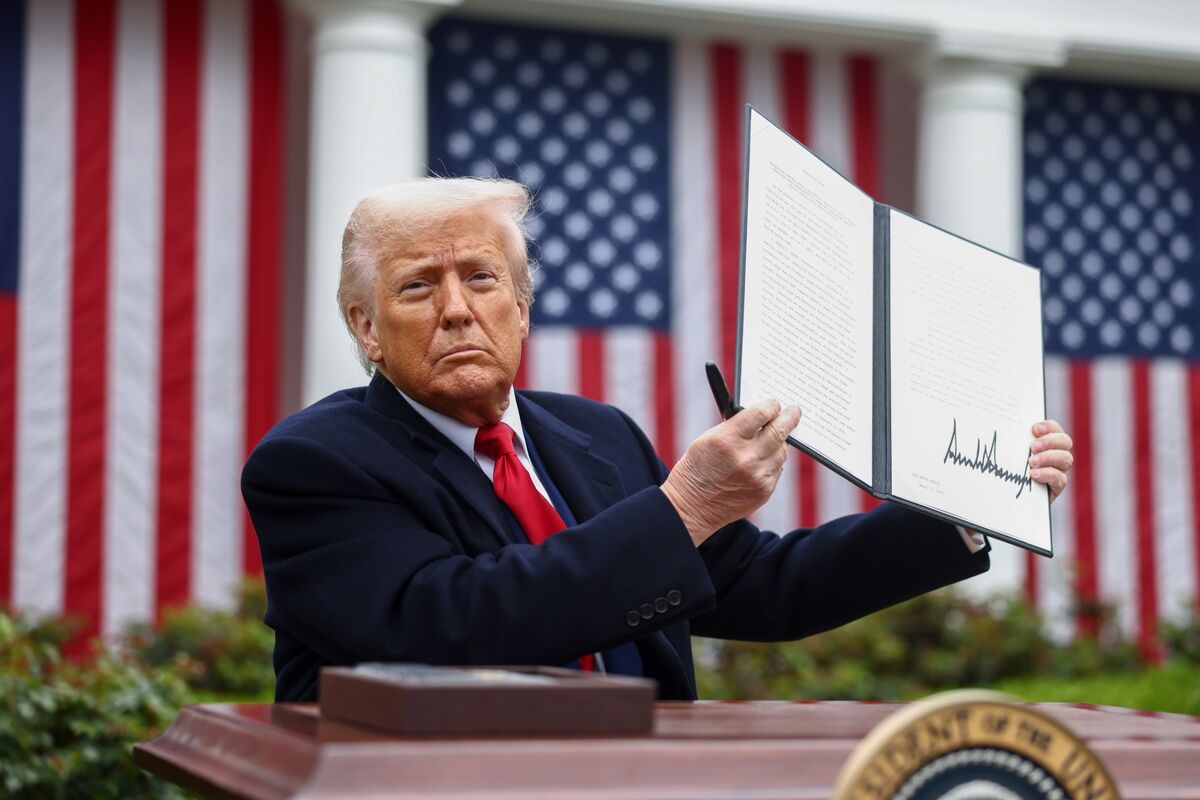Kenya and South Africa respond to Trump's 'Liberation Day' tariffs

The Kenyan and South African governments have issued statements regarding U.S. President Donald Trump's decision to impose tariffs on countries that charge Value Added Tax (VAT) on imported U.S. goods.
Trump's new policy introduced a 10% tariff on Kenyan exports due to the country’s 16% VAT on American products and a 30% tariff on South African exports, citing their 60% VAT rate.
Kenya’s Foreign Affairs Principal Secretary, Korir Sing’oei, responded on X, minimizing the potential effects of the tariffs.
He highlighted that Kenya’s VAT rate remained among the lowest and that the country was grouped with other nations such as the UK, Egypt, Morocco, Uganda, Tanzania, and Ethiopia.
Sing’oei mentioned that Kenya would seek a waiver for the new tariffs. However, he also pointed out that the tariffs would not be implemented right away.
He stressed that under the African Growth and Opportunity Act (AGOA), African countries are permitted to export tariff-free until the agreement concludes in September.
"While the tariffs may be among the lowest, we shall vigorously advocate for their waiver," Sing'oei stated.
In a follow-up statement, Cabinet Secretary, Ministry of Investments, Trade and Industry Lee Kinyanjui, said the new tariff policy by the US presents both challenges and opportunities for Kenya.
"While Kenyan exports to the U.S will now face a 10% tariff, this is significantly lower than the rates imposed on key textile-exporting competitors like Vietnam (46%), Sri Lanka (44%), Bangladesh (37%), China (34%), Pakistan (29%) and India (26%)," said the CS.
He adds there are opportunities for Kenya with the new tariff shift, including that Kenya could position itself as an alternative sourcing hub for US buyers since other textile-exporting countries face much higher tariffs.
"This presents an opportunity for investment in local textile production and value addition, that could attract businesses seeking to avoid higher costs from traditional suppliers," read Lee's statement.
The CS said the major challenge posed by the U.S reciprocal tariff is the increased costs for Kenyan exports.
"While the 10% tariff is lower than the competitors' tariffs, it still raises costs for Kenyan businesses exporting to the U.S. Supply chain adjustments will be necessary, such as expanding production to meet new demand," added the CS.
"This will require investment in infrastructure, technology, and skills development."
In South Africa, a statement from the President's office acknowledged the introduction of new tariffs and conveyed a willingness to engage in talks with the U.S. to lift the "punitive" measures while preserving trade relations.
"South Africa remains committed to fostering a mutually beneficial trade relationship with the United States, but the unilateral imposition of punitive tariffs raises concerns and acts as a barrier to trade and shared prosperity," the statement noted.
